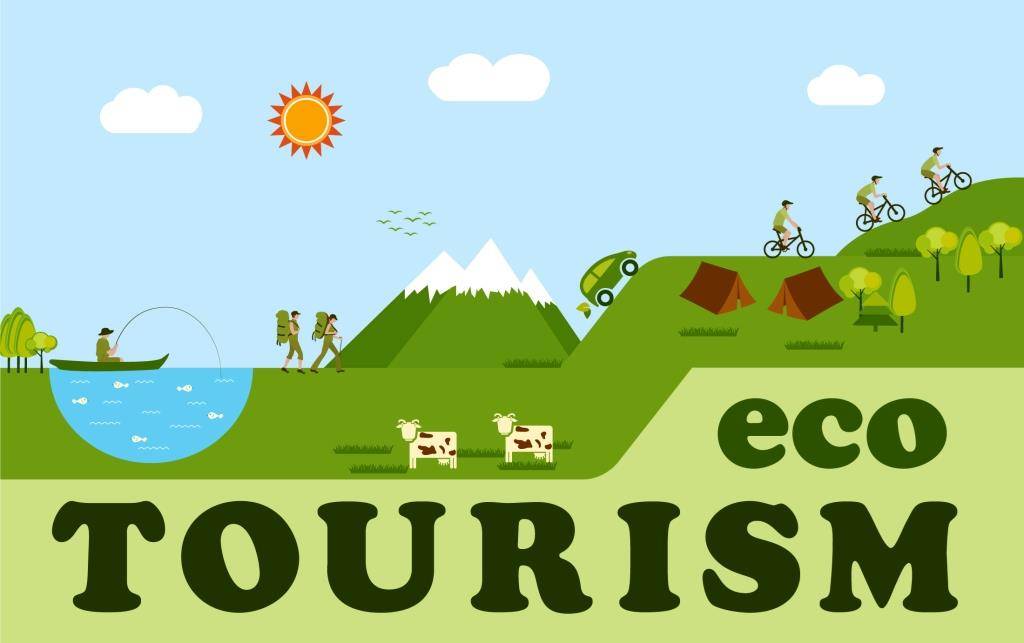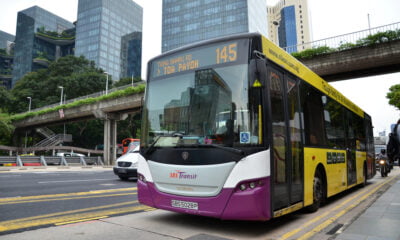

Features
The Eco-Tourist’s Ultimate Guide To Getting A Visa After COVID-19
Eco-tourism is a booming business these days. According to some estimates, eco-tourists spend up to $233 billion a year.
Of course, the sustainable tourism industry has taken a hit due to the pandemic. Fewer people are traveling these days, including people that are passionate about sustainability. Also, airlines and other venues are forced to operate at lower occupancy rates, which is not a good use of energy, which therefore leaves a larger carbon footprint.
The good news is that the pandemic won’t last forever. If you want to plan an eco-tourism vacation after it ends, then you should start getting your visa now.
Getting Your Visa for Your Sustainable Vacation After COVID-19
Applying for a visa to visit another country, whether for work or pleasure, can be time-consuming and confusing, especially if you’ve never done it before. And we know that planning a green vacation or other trip can be stressful enough without the added pressure of securing a visa, so we’ve put together a guide to help you with the application process.
What is a visa?
A visa is an official document which allows an individual to enter another country for a specific period of time and purpose, such as to travel, work, or join a family member who is employed there. It determines travel eligibility and, without one, a person may not be able to enter a country. Many countries ask for a visa, although the application requirements differ from one place to another.
Travel visa
A travel visa allows individuals to visit a country purely for tourism and leisure purposes but doesn’t entitle you to work during your stay. If you’re planning to stay somewhere for an extended period of time then you’ll need a travel visa. For instance, most countries let you visit visa-free for up to 30 to 90 days, including the Cayman Islands, Thailand, and the Philippines for up to 30 days and Belgium, Hungary and Malta for 90 days.
Work and business visa
A work visa is required if you plan to work in the country you’re visiting and live there for an extended period of time. Some countries have specific requirements—for instance, working in Brazil requires a residence permit as well as a work visa. However, a business visa is required in many countries for engaging in activities that aren’t considered work or gainful employment, like attending meetings, conducting negotiations, and participating in unpaid training. For instance, you’ll need a business Schengen visa if you’re travelling to any countries within that area, including Belgium, Denmark and Sweden, and planning on doing business.
Do I need a visa?
In 2025, the United Kingdom is also planning to introduce electronic travel authorization for tourists.
This depends on where you’re travelling and the travel deals made between the official governing bodies for the countries. UK travelers, for example, will need a visa to visit Australia but can travel visa-free to countries like Norway, Sweden, and Switzerland. The purpose of your trip also dictates what kind of visa you need to apply for. For example, if you work in oil or petroleum and need to visit Kuwait on business, you would need a Kuwait Work Visa as opposed to a Joining Family Visa. The length of stay also impacts whether or not you will need a visa. For instance, US citizens don’t need a visa to visit most European countries, unless they intend to stay longer than 90 days. So, if you’re just travelling for a few weeks, it may not be needed.
To check whether you need a visa or not, visit your home country’s government website for information about travel to the country in question, including entry requirements, embassy details, and safety warnings. Make sure to do this months ahead of travelling to account for application and processing times. It’s also recommended to avoid making non-refundable travel arrangements until you’ve been issued a visa. Some countries offer a visa on arrival, which is a more convenient option and means you don’t need to worry about applying for one before travel. This is completed when you land and airport officials check your passport, collect any relevant fees, and then issue you a visa.
How do I get a visa?
To get a visa, visit the embassy or consulate website of the intended country so you can find information on the application process, appointment scheduling, and the types of visas available. Make sure to check the requirements for your chosen destination before starting your application. These typically include an application form, your passport, a photograph of you, as well as additional documents like your flight itinerary and travel insurance. Most countries require your passport to be valid for between 90 days and six months beyond the date of your stay.
When applying for work and business visas, you may also be asked for a letter of invitation. This is a formal invitation into the country from the person you intend to visit. Once you have all your documentation, check it’s accurate then send it off with your visa application form and fees, either electronically or in the mail. You may need to book an appointment and attend an interview to get your visa finalized as part of the application process.
How much does a visa cost?
Each country has different visa fees so check the country’s government immigration website for specific costs. Typically, a visa will be between $30 and $200, excluding packaging, copying, and notarization (a way of ensuring all documents are legitimate). For example, a visa to visit Russia for up to 30 days costs $46, while a visa for Saudi Arabia will cost $117.
How long will I have to wait?
Official waiting periods to receive your visa usually range between two days and three weeks, although this doesn’t include the time needed to fill out the application form and gather relevant documentation. Some embassies will ask you to attend an in-person appointment which can add to the turnaround time. Each country has different processing times so make sure to check the government website to find out this information. For instance, an Italy Schengen short-stay visa can take around three weeks to complete the process, while a visa for China may be completed in under four days. You should also allow more time in case you run into any problems, such as incorrect information, missing documents, and extended postal times. You can make the process faster by hiring an agency to fill out the forms on your behalf, though you’ll have to pay for the pleasure.
Every Eco-Tourist Needs a Visa
Are you planning a sustainable vacation or trip? You will need a visa if you plan to leave the country. The tips outlined above should help.


 Environment12 months ago
Environment12 months agoAre Polymer Banknotes: an Eco-Friendly Trend or a Groundswell?

 Features11 months ago
Features11 months agoEco-Friendly Cryptocurrencies: Sustainable Investment Choices

 Features12 months ago
Features12 months agoEco-Friendly Crypto Traders Must Find the Right Exchange

 Energy11 months ago
Energy11 months agoThe Growing Role of Solar Panels in Ireland’s Energy Future




























